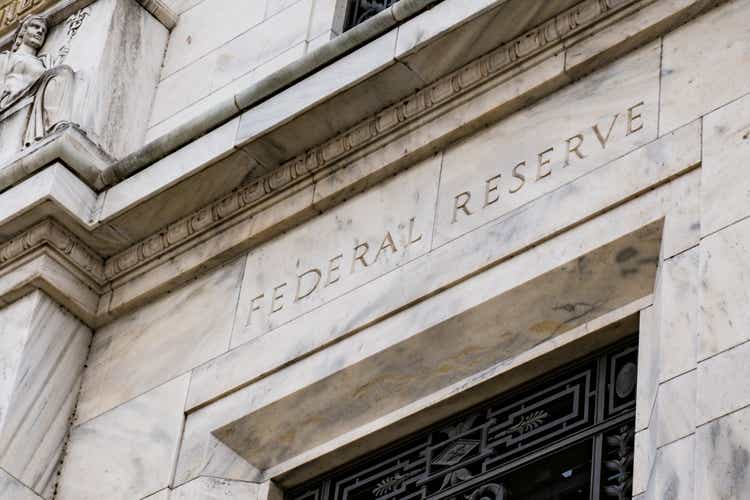pabradyphoto
Market up pre-Jackson Hole. What were you expecting?
With good news beginning to surface on the inflation front (“The CPI was flat from the prior month, coming after June’s 1.3% jump. The core CPI rose 0.3% from June, a big step down from June’s 0.7% increase. The annual core inflation rate held at 5.9%. March’s 6.5% core inflation rate was the highest since August 1982″ – Investor’s Business Daily, August 10, 2022), was it smart to expect an immediate softening in Fed rhetoric? No. That would be plum silly. The smart money started selling August 15 (S&P 500 4,305 and NASDAQ 13,102) in the expectation of a weaker market in the run-up to last Friday’s Fed symposium. After Friday’s bloodbath, we find the S&P and NASDAQ at 4,058 and 12,141 respectively. In other words, Powell’s tone and message was not a surprise to the market-savvy, only to the “clueless” who decided to step in front of the meeting to buy.
The important point I make here is that Powell’s hawkish message started being priced into the market starting August 15 (with a brief respite last week’s strength) until his actual speech. The S&P and NASDAQ are down 6% and 7% respectively during the 11-day period.
Nothing new to see here, folks
Powell’s speech contained nothing that had not been said before, and the “pain” that he is referring to is already being felt in certain inflated sectors. For example, housing, which had been one of the hot spots in the inflation war, has ground to a halt on the heels of much higher mortgage rates cutting into affordability. Assuming current rates hold or move higher, the only way to affect better affordability will be cutting prices. This brings me to an important point: “Powell knows that inflation is not just a monetary issue – it is also a psychological phenomenon.” (VanEck Hotline on Money and the Economy, August 27, 2022).
If consumers expect inflation will continue to be a problem, they will buy today (and pay retail or some premium) for fear that prices will be higher next week. The issue is curbing consumer inflationary expectations. I would submit that this was happening in housing over the past few years and that it is not the case today. Instead of paying asking price (or a premium) for a house, consumers have backed off, assuming higher rates for mortgages will stifle demand and that they may be able to buy their dream home at a much better price in the future (deflationary expectations setting in). Not that deflationary psychology is a goal, you just need to get inflationary expectations under control. Powell coming out Friday and saying that we were making good progress in the fight against inflation and may not need a larger rate increase in September does nothing to tamp down those expectations. My advice is not to expect any encouraging words in the near-term future from Mr. Powell or his minions.
Is a two percent long-range inflation goal realistic / problematic?
On a longer-term basis, I think the answer is “problematic”. I think it is problematic because the 2% inflation goal is based on a world economy that no longer exists… the disinflationary good times emanating from 2 or 3 decades of globalization. Supply chain issues from the Covid shutdowns (bringing manufacturing back), a very tight labor market in the United States and the hundreds of millions of new consumers in Asia minted during the period of globalization (a huge source of new demand for resources that was not around twenty years ago). Energy prices would be another area where the Fed would have little impact. This, I believe, is a risk, and I hope the Fed is not married to this unrealistic goal, as trying to get to 2% would be quite painful.
Expect more tough talk
I believe it would be premature for the Fed to get off its high horse rhetoric regarding the taming of the inflation beast, as they know they need to taper inflationary expectations. So, expect tough talk to continue and expect what some would consider “draconian” rate increases in the future. They will not usher in the “end times”. Remember, this tightening phase has been underway some time, with little of no effect on corporate earnings. Underlying all this, we have a very strong economy with record-low unemployment. Chances are the Fed’s bark will be significantly worse than its bite. I believe we should be buying the dips and not letting them (the all-knowing media) scare you out of your stocks.
What’s your take?
Editor’s Note: The summary bullets for this article were chosen by Seeking Alpha editors.


Be the first to comment